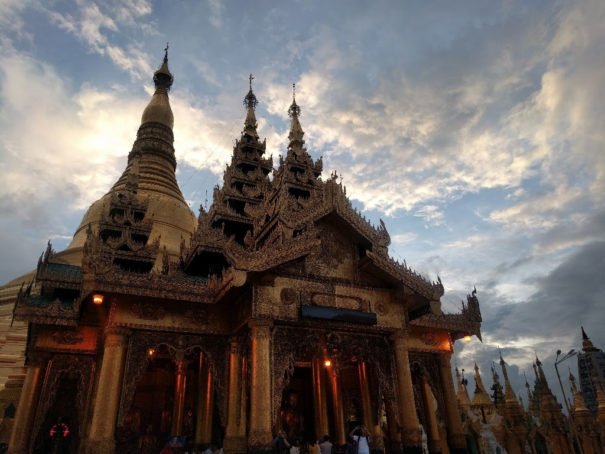
R&K Insider: Thinking of Yangon edition

Conflict, social media, and trains to nowhere.
Sign up for R&K Insider, our collection of the most compelling happenings in food, politics, and travel from across the web.
As you may know, I was in Yangon recently. I had many conversations with people I met there about the ethnic violence that has erupted in the country during the transition to democracy, which began around five years ago. People working in the Shan State grimly joked about making sure their wardrobes wouldn’t attract the attention of snipers. Others discussed “black zones” where journalists are forbidden to visit. I was thinking of this as I read the horrifying account of the flight of Rohingya from the western Rakhine State. Since fighting began on Aug. 25, a systematic campaign of destruction has been waged on the Muslim inhabitants of this region, resulting in unknown casualties and the flight of tens of thousands of people. If you need a refresher on who the Rohingya are and what’s happening to “the world’s most persecuted people,” you can find one here.Nobel Peace Prize-winner Aung San Suu Kyi, the country’s de facto leader, claims that people are spreading “fake news” about the crisis there, because we live in a trash bag echo chamber of a world, in which everyone latches on to the same meaningless buzzwords to justify whatever atrocities they choose. There have already been calls for her peace prize to be revoked. The violence made me think of this look at a Buddhist monk in Myanmar who preaches an “interminable hatred” toward the Muslim population of his country. As one person there told me, “It’s not the Buddhism you know.”
I was struck by the frequency with which people there brought up Facebook as a tool for inciting hatred in the country. Internet usage has exploded in the last few years across Myanmar, and, as one resident told me, “everyone is on Facebook.” (This article explains the singular importance of the social media site in the country.) While the accessibility of information is life-changing, many commented that Facebook provided echo chambers where people would say horrible things; one person speculated that because internet access was so limited until recently, many Burmese had not yet learned to “live online.” Multiple people told me that they felt Facebook provided a forum for those with prejudiced views to rile each other up. (This phenomenon has been documented.)
To be clear, I’m not saying that the ethnic cleansing taking place is a direct result of Facebook. But the evidence that the platform creates dangerous ideological bubbles is pretty clear. Over the holiday weekend, I read this blistering essay on the company and its role in political debate. And then came the not shocking at all news that Facebook sold $100,000 in ads to a shadowy pro-Kremlin company during the U.S. presidential election. The full implications of Facebook’s influence in our public lives is not yet known, but suffice to say, it’s not looking great!
To end, let’s look at photographer Andrew Stanbridge’s photographs of the Rohingya community and this photo essay by Chris Beale. And let’s ride Myanmar’s train to nowhere, a microcosm of the discrimination faced by Muslim residents.
That’s it for this week. See you again next week for more of the best in food, politics, and travel from around the web. Tweet me stories you want to see here @caraparks.